In just a decade, the game-changing digital streaming and media service provider Spotify has transformed the music industry. The company’s popularity has marked the shift from physical to digital music and it has helped the world identify the internet as a key source for music distribution.
With more than 100 million subscribers since last year, Spotify is just one example of the impact of technology on the music industry. Today, the demand for digital music is stronger than ever and music tech startups, in Israel and elsewhere, have come out of the woodwork to effectively use digital technology to reshape and rejuvenate the music landscape.
From creating different guitar sound effects with the use of one wireless touchpad to viscerally “feeling the music” with the aid of potent haptics on a chest strap, tech has brought benefits to both musicians and the people who listen to it.
NoCamels highlights four startups from Israel that are revolutionizing the music scene.
JoyTunes
With an ongoing health crisis lurking in the background, and much of the population staying at home, it might be the right time to pick up a new hobby — like learning to play a musical instrument. Learning to play the piano could be a logical first step and for that, there is Tel Aviv-based startup JoyTunes.

This music learning app uses educational methods, sound recognition, and their own patented MusicSense Engine technology to “reinvent the way to learn, play, and experience music.”
JoyTunes’ apps use their MusicSense Engine tech to acoustically listen to notes that are being played by users in order to recognize and respond to them with feedback in real time. According to the company’s founder Yuval Kaminka, this is what differentiates the startup’s apps from others on the market.
“Users can in a few minutes play their first song with three notes, 20 minutes later play five notes, and in an hour and a half can play [the song] Jingle Bells in full,” he tells NoCamels.
SEE ALSO: New Game Turns Your iPad Into A Piano
“We improve pedagogy all the time,” he adds, “We look for those aha moments and milestones for users to realize how much they are learning.”
The company, founded in 2011, has more than 10 million users worldwide and is used by 10 percent of music teachers in the US. The company also works with music educators by combining teaching with new gaming features and technology.
Users can learn how to play through mobile apps featuring interactive listening, gaming features, and other music learning methodologies. Simply Piano, the company’s most recognized app, shows users which piano keys to press in order to play a song. Apps from JoyTunes are known for being interactive and teaching users to play intuitively.
The company says it has been chosen as one of the best apps by Apple and Google.
Last year, JoyTunes raised $25 million in a round led by Tel Aviv-based venture capital firm Qumra Capital. Other participants included New York-based venture capital and private equity firm Insight Venture Partners, an existing investor, venture capital fund Aleph and Jeremy Stoppelman, the CEO and founder of business directory service Yelp.
The company has raised a total of $43 million to date. Kaminka tells NoCamels the company strives to “reach evey single houshold ” and even become “the ‘Netflix for music learning.’
Emeo
Earlier this month, a Tel Aviv-based startup named Emeo announced the launch of its cutting-edge new product– the first digital practice horn for saxophone players.
The Emeo offers a unique solution to the problem faced by saxophone players, namely the loud sound made by the instrument and the difficulty in muting it, the company said.
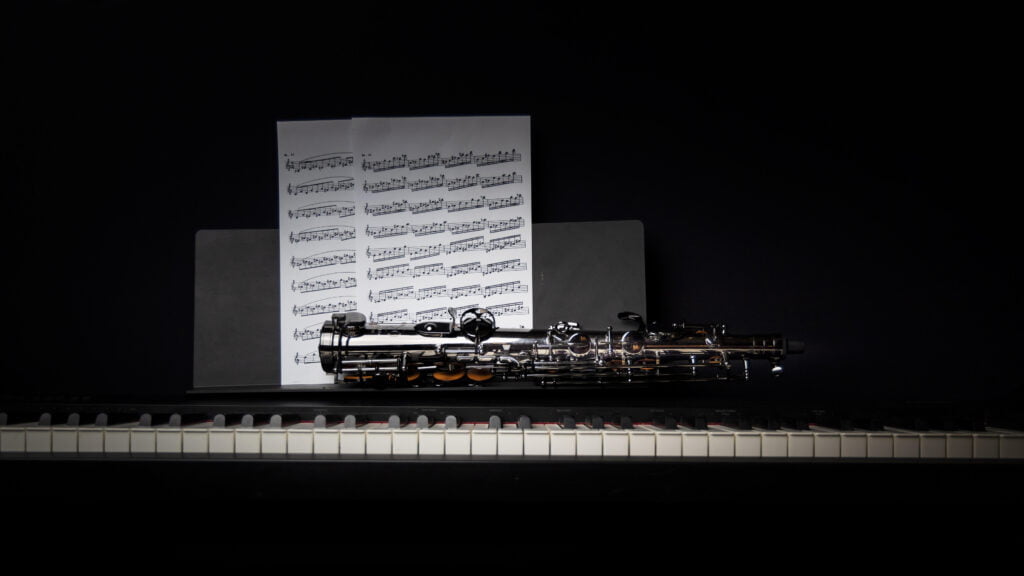
The digital horn allows musicians to play anytime and anywhere, via USB, MIDI, or Bluetooth connections to computers or smartphones.
The Emeo is a digital practice horn, known as a wind MIDI wind controller. It works like an electronic music keyboard, that you can connect to a computer. The difference between the Emeo and other MIDI wind controllers, is that it has the feeling of being a real saxophone.
“You play the Emeo through speakers or headphones, by connecting it via USB-MIDI or Bluetooth to DAW programs on computers, tablets and smartphones,” said Emeo’s marketing specialist Michael Simkin.
The company has also partnered with Imox’s Respiro, a new generation software synthesizer using physical modeling that contains a “state of the art” sound engine able to reproduce the sound and behavior similar to wind-instruments. The company has crafted a range of high-quality MIDI sounds especially for the Emeo, Simkin says.
When he was younger, the company’s co-founder Oleg Raskin, a professional saxophone player, faced complaints from family members and neighbors for the loud sound created by practicing the saxophone.
Sign up for our free weekly newsletter
Subscribe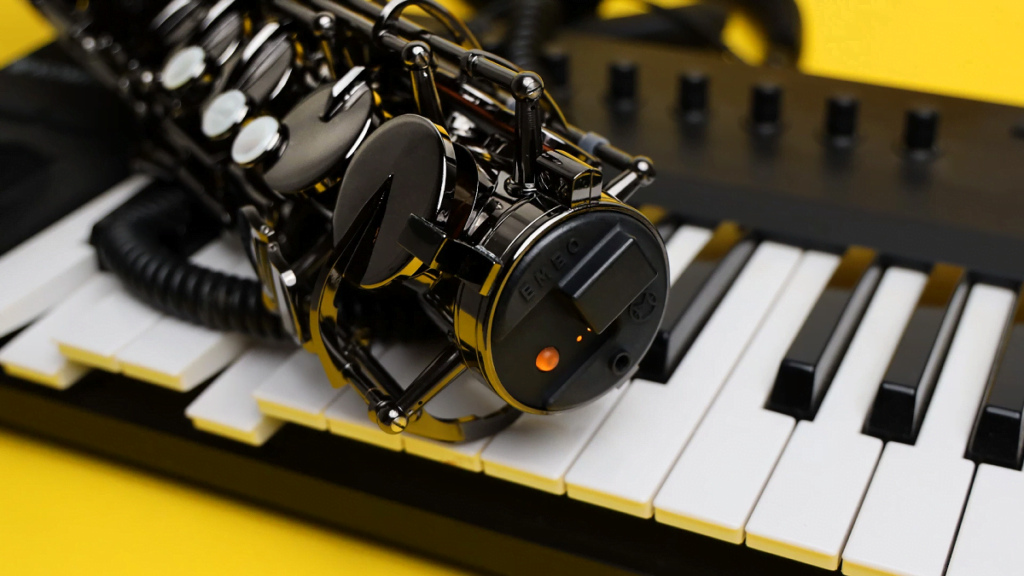
While various attempts have been made to mute the sax, including acoustic rooms and special, padded bags placed inside the instrument, many of these efforts had their downsides, Emeo’s marketing specialist Michael Simkin tells NoCamels. Five years ago, Raskin teamed up with friends Evgeny Klukin and Eddie Goffman, owner of the Woodwind Lab in Tel Aviv and a skilled woodwind repairman, to make their own attempt. Together they developed a prototype made out of a real saxophone. The Emeo, an electronic saxophone which was made to be as close as possible to a conventional saxophone, was born. Later, an electronic engineer and other musicians also joined the team.
The launch of the Emeo is already setting the international saxophone scene buzzing, with well known players such Rosario Giuliani saying: “It is an incredible invention that you can play everywhere.”
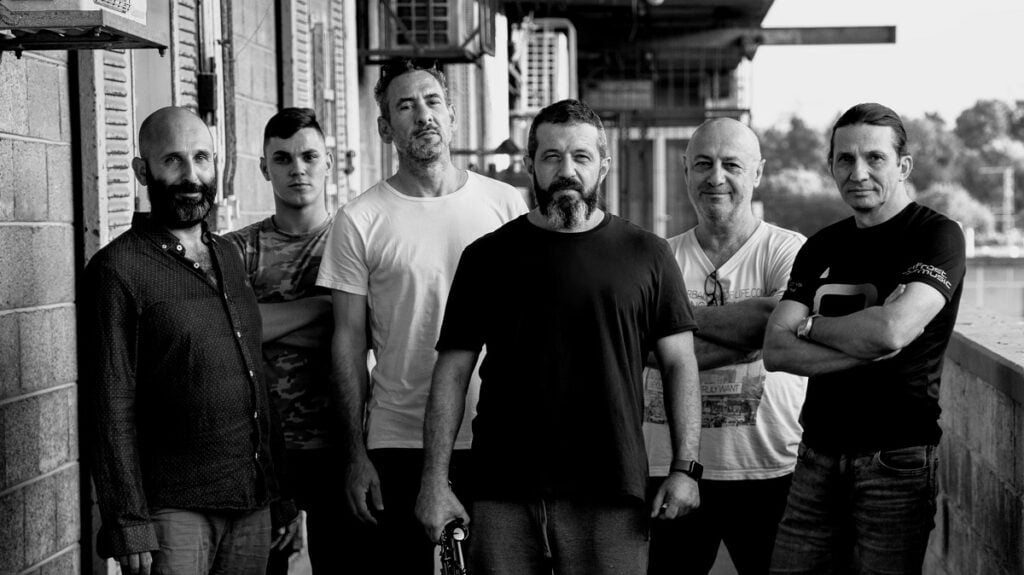
The Emeo Team are opening their pre-order on 3rd July 2020, with first deliveries expected to take place at the end of August 2020.
The company has plans to specialize in a whole range of digital practice horns based on various woodwind instruments.
RevPad
Electric guitarists are known for their electrifying guitar solos at raucous rock concerts, which are often enhanced by extensive sound effects produced by effects pedals. Using a mess of cables, most musicians connect their guitars to several pedals, which they set on throughout the performance for desired effects.
Since Israeli startup GTC Sound Innovation’s revolutionary RevPad continues to free guitarists from these cumbersome pedals. The unique wireless touchpad controller is designed to attach easily to any amplified instrument and play a number of sound effects.
“Every guitarist has effects that he uses,” says Oded Elbonim, GTC’s sales and marketing director. “If it’s distortion, if it’s echo, if it’s tremolo, if it’s harmonizer, if it’s any kind of silly pedal that sits on the pedalboard on the floor. I’m sure you’ve been to concerts before, where you’ve seen the guitar player sometimes bending down and quickening and always having to go back to his place at the right time,”
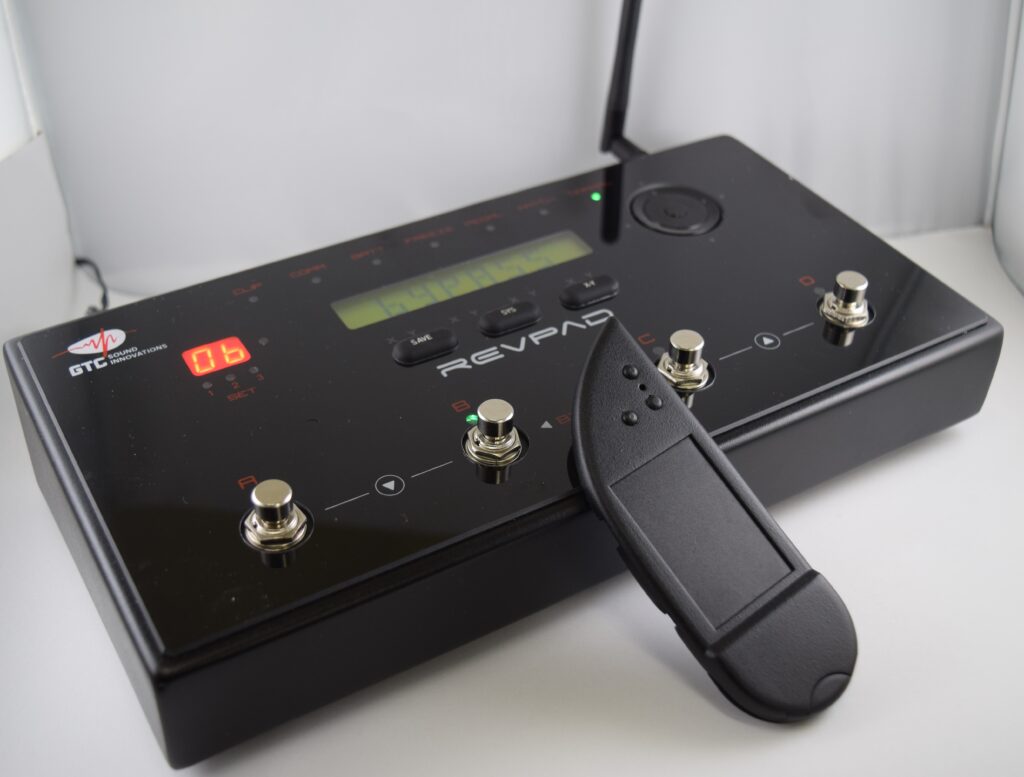
“The concept is that we’ve developed a touchpad that is attached to your guitar. It’s attached by velcro — and you can mount it on your guitar and take it off your guitar easily and freely to transfer to another guitar,” he tells NoCamels.
The concept of a sound controller without pedals isn’t new, but it’s not common to find a wireless product that doesn’t need to be connected to sound effects software installed on a computer. The RevPad touchpad, on the other hand, communicates with a RevPad base until loaded with at least 30 categories of sound effects.
In the past, RevPad has been well received by guitarists like Steve Vai, Vernon Reid, and Ron “Bumblefoot” Thal, the lead guitarist for Guns N’ Roses from 2006 to 2014, according to Elbonim. But it isn’t limited to guitarists. Elbonim says the team is also working with a Swiss musician who plays electric violin.
“The RevPad is plugged to your amplifier. So any equipment that needs amplication can use the RevPad,” Elbonim says, adding that one may need to change the effects because the effects of a guitar are not necessarily suitable for effects of a violin. Elbonim admits that the effects are actually written algorithms and that they have someone in-house who specializes in algorithms and has written all of the effects used on the wireless touchpad for guitar.
The Kiryat Haim-based company is privately funded and employs about eight people. The Revpad is currently priced at $644.99 on GTC’s website. The pad alone is available for $149.
“I think the world today is more open to new technology. You know, musicians tend to be quite old fashioned. We spoke to musicians in the past and they said, ‘I like to go to my pedal.’ But they have to bend down to change the amplitude or any other features and they have individual pedals to switch on and off. So now all those things have disappeared because you can control everything through your touchpad,” he tells NoCamels.
Woojer
A US-Israeli startup founded in 2011 has developed unique polyphonic “haptic technology” that enhances music and audio to literally let you feel sounds.

In other words, the wearable devices, which be worn as a strap or vest — not headphones, can accurately reproduce bass frequencies to deliver the emotional tactile sensation directly to the wearer’s body, the company has said.
“We have our own patented components that give you those haptic sensations to very accurately reproduce the same experience that even a deaf person will experience when they go to a concert or a theater,” says Kfir Bar-Levav, co-founder and CEO at Woojer.
According to Bar-Levav, Woojer’s tech takes the low frequency of any sound and translate it into a vibration that is felt by the body.
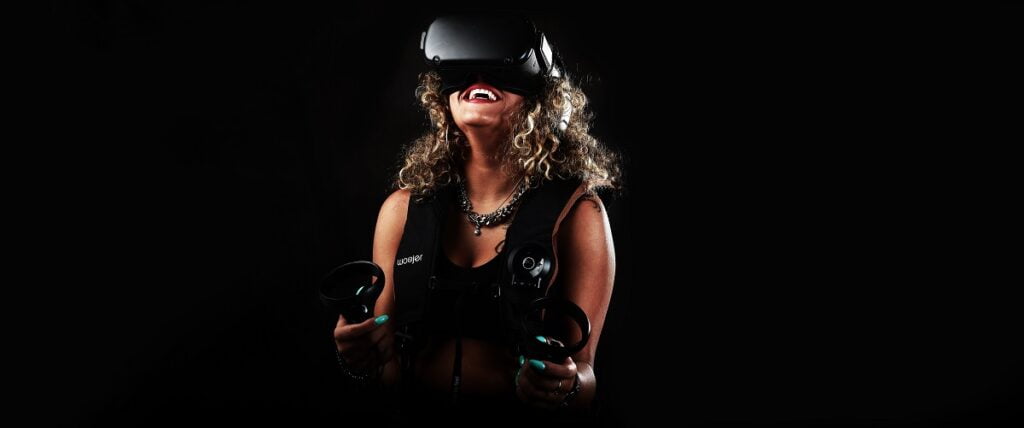
At the end of last year, the company ran an Indiegogo campaign where it raised over $4 million by more than 20,000 backers. It has already begun making deliveries of the product, though the campaign is still live, Bar-Levav said. The company also ran a Kickstarter campaign last year.
Woojer is also used to create immersive experiences in gaming and virtual reality.
The company has raised over $3 million to date.
Shana Jacobson contributed to this report.
Related posts

Editors’ & Readers’ Choice: 10 Favorite NoCamels Articles

Forward Facing: What Does The Future Hold For Israeli High-Tech?

Impact Innovation: Israeli Startups That Could Shape Our Future


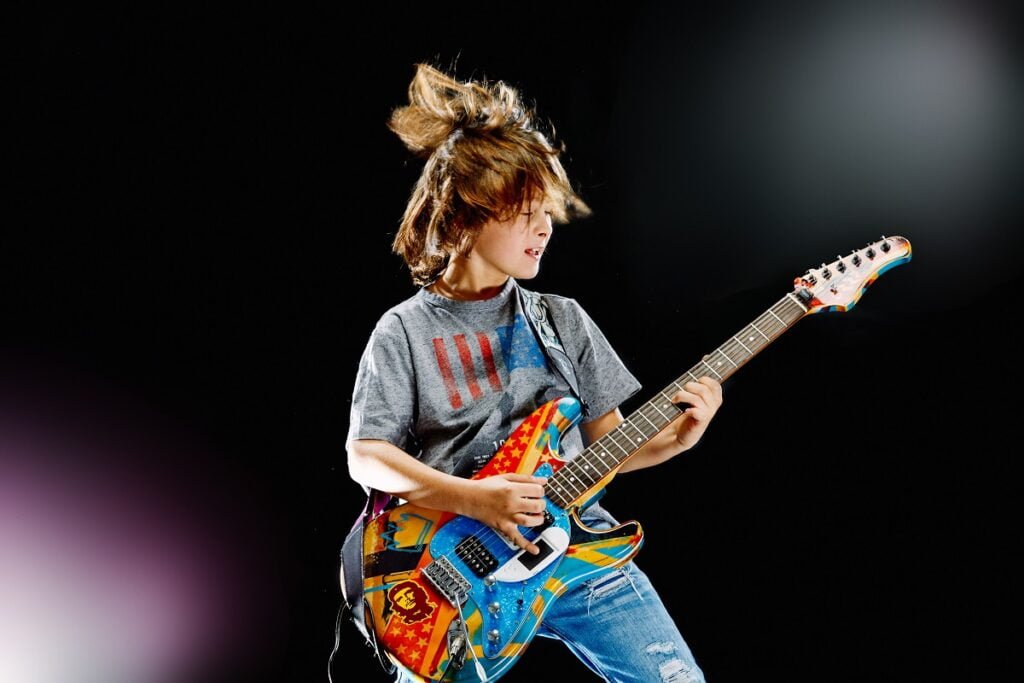

Facebook comments